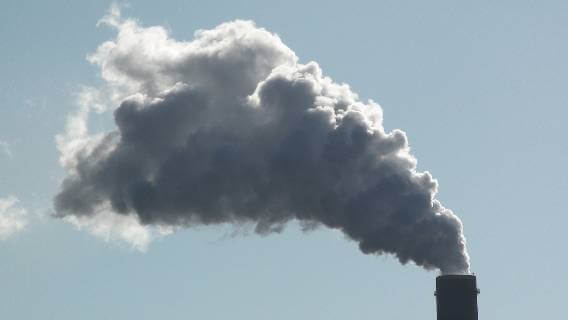EPA, DOJ Sue Denka Over Cancer-Causing Emissions in Louisiana
Editors carefully fact-check all Consumer Notice, LLC content for accuracy and quality.
Consumer Notice, LLC has a stringent fact-checking process. It starts with our strict sourcing guidelines.
We only gather information from credible sources. This includes peer-reviewed medical journals, reputable media outlets, government reports, court records and interviews with qualified experts.

The future environmental health and welfare of Louisiana residents who live near a chemical plant is at the center of a federal lawsuit.
The United States Department of Justice, on behalf of the U.S. Environmental Protection Agency, filed a Clean Air Act complaint against Denka Performance Elastomer in late February. It alleges the company is spewing carcinogenic air pollution from its plant. The complaint wants to force the company to further reduce its hazardous emissions.
“We allege that Denka’s emissions have led to unsafe concentrations of carcinogenic chloroprene near homes and schools in St. John the Baptist Parish, Louisiana,” said Associate Attorney General Vanita Gupta.
The company, formerly owned by DuPont and sold to Japan chemical giant Denka Company Limited in 2015, creates Neoprene products — a synthetic rubber used in products such as laptop sleeves, orthopedic braces, wetsuits and gasoline hoses.
“The Justice Department and EPA have worked closely together to bring decisive action to address Denka’s harmful air pollution,” said Assistant Attorney General Todd Kim of the Justice Department’s Environment and Natural Resources Division.
“[The] complaint is part of our ongoing effort to advance environmental justice in overburdened communities through the enforcement of laws.”
Toxic Emissions Near Plant Could Pose Health Risk
The complaint states that air pollution from the plant operations is dangerous and an “imminent and substation endangerment to public health and welfare due to the cancer risks from Denka’s chloroprene emissions.”
Chloroprene, a raw product used by the plant, has been found in heavy concentrations in air monitoring samples near the plant, according to an EPA study.
EPA officials identified chloroprene as “likely to be carcinogenic to humans,” meaning there is enough evidence to show it is a suspected carcinogen to humans.
Exposure to chloroprene can cause:
- Chest pains
- Damage to the liver, kidneys and lungs
- Dizziness
- Eye and skin irritations
- Gastrointestinal disorders
- Headaches
- Respiratory irritation
“According to the complaint, filed [Feb. 28] in the U.S. District Court for the Eastern District of Louisiana, air monitoring – conducted by both the EPA and Denka over the past several years – consistently shows long-term chloroprene concentrations in the air near Denka’s LaPlace facility that are as high as 14 times the levels recommended for a 70-year lifetime of exposure,” the EPA said in a statement.
Since Denka took over in 2015, it has worked to reduce chloroprene emissions by 85% at a cost of more than $35 million, according to a 2021 statement by the company.
Denka earlier petitioned the EPA to reevaluate the way it assesses chloroprene emission risks to humans, alleging the agency uses an “outdated and erroneous science.”
Despite the action taken by Denka over the past eight years, government officials said it’s not enough.
“The company has not moved far enough or fast enough to reduce emissions or ensure the safety of the surrounding community,” said EPA Administrator Michael S. Regan. “This action is not the first step we have taken to reduce risks to the people living in St. John the Baptist Parish, and it will not be the last.”
Children’s Health Concerns Raised in Lawsuit
Denka’s plant is in LaPlace, Louisiana, in St. John the Baptist Parish, about 30 miles northwest of New Orleans, between Lake Pontchartrain and the Mississippi River.
The area is regionally known as “Cancer Alley.” The 85-mile stretch along the river developed the nickname because of its concentration of petrochemical plants and high rates of cancer cases among residents.
St. John the Baptist Parish is home to about 42,000 people and more than half of its residents are Black or African American, according to 2021 U.S. Census Bureau data.
“The Justice Department’s environmental justice efforts require ensuring that every community, no matter its demographics, can breathe clean air and drink clean water. Our suit aims to stop Denka’s dangerous pollution,” said Associate DOJ Attorney General Gupta.
5th Ward Elementary School, located about 450 feet from the Denka plant, educates approximately 300 students. Another 1,200 children attend East St. John High School about 1.5 miles away.
School district superintendent Rebecca W. Johnson called the matter “complex” and declined to provide comment to ConsumerNotice.org regarding the litigation. However, she stated the school board is not party to the litigation, nor has it been contacted by the Louisiana Department of Environmental Quality or the EPA.
The Justice Department said 20% of the population living within 2.5 miles of Denka are under 18 years of age, and about 1,000 are children under age 5.
“According to guidance that looks at impacts of certain cancer-causing chemicals to children, EPA also acknowledged that children accumulate excess lifetime cancer risk from breathing chloroprene faster than adults,” the DOJ noted in its statement.
Children who are exposed to carcinogenic pollutants, like chloroprene, are particularly vulnerable to developing an illness because it can be “mutagenic” or change DNA and harm cells.